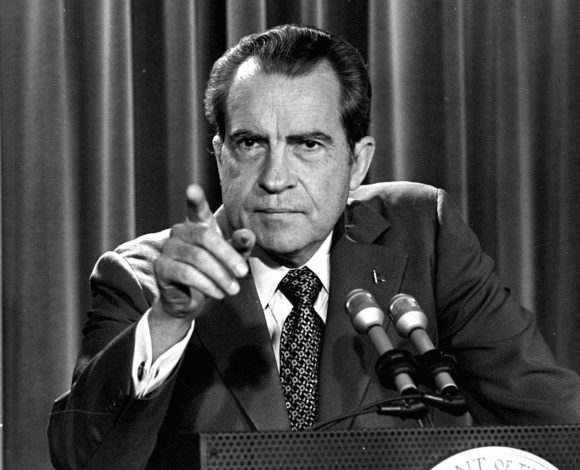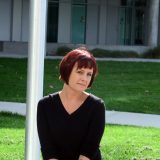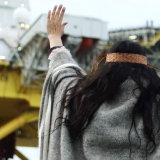Dr. Luke Nichter: Newly Appointed James H. Cavanaugh Endowed Chair in Presidential Studies
June 23, 2021
 Wilkinson College of Arts, Humanities, and Social Sciences is pleased to welcome new faculty member Dr. Luke Nichter, who was recently named the inaugural James H. Cavanaugh Endowed Chair in Presidential Studies.
Wilkinson College of Arts, Humanities, and Social Sciences is pleased to welcome new faculty member Dr. Luke Nichter, who was recently named the inaugural James H. Cavanaugh Endowed Chair in Presidential Studies.
Dr. Nichter is an author and scholar of American history and his area of specialty is the Cold War, the modern presidency, and U.S. political and diplomatic history, with a focus on the “long 1960s” from John F. Kennedy through Watergate (and a noted expert on Richard Nixon’s 3,432 hours of secret White House tapes). His books include “Richard Nixon and Europe: The Reshaping of the Postwar Atlantic World” (Cambridge University Press) and “The Last Brahmin: Henry Cabot Lodge Jr. and the Making of the Cold War” (Yale University Press).
James H. Cavanaugh is the Chairman of the Nixon Foundation Board of Directors, which he has been involved with for over 10 years. Before that, he was a successful businessman and influential expert on health care, serving as the key adviser to Presidents Nixon, Ford and Reagan.
Cavanaugh was quoted in the Chronicle of Higher Education saying, “This is an exciting time to support such important work at Chapman University. These faculty are renowned scholars in this field and exemplify the best of Chapman.”
Voice of Wilkinson: Welcome to Chapman University, Wilkinson College, and congratulations on the new position. Tell us a little bit about yourself.
Dr. Luke Nichter: I’ve been on the faculty at Texas A&M University – Central Texas since finishing a PhD in History at Bowling Green State University in 2008. Growing up in the rustbelt among the cornfields of northwest Ohio, in a blue-collar family in which I was a first-generation college graduate, Texas was as familiar to me as Mars. My wife Jennifer and I moved there a month after we were married, and our daughter was born in Temple. Before long, we were hooked. We love the Southwest – the people, the food, and the weather. If you’ve ever shoveled snow, it’ll remind you during the next heat wave that there are worse places to be! Along the way I’ve had a series of visiting fellowships in North America and Europe, worked in U.S. Congress and the British House of Commons, served as Executive Producer of C-SPAN’s American History TV, and my last two books were funded by year-long grants from the National Endowment for the Humanities. Trained as a diplomatic historian, my work today blends that field with 20th century U.S. presidential, political, and Cold War history.
VoW: Not only is this a brand-new position for you AND the University, but Chapman is also a new home for you. How are you feeling about the upcoming semester?
LN: I am honored to hold the James H. Cavanaugh Chair, and am grateful to the Cavanaughs and Chapman for making it possible. The upcoming semester will be a fresh start, the first step in life’s next chapter.
VoW: Dr. Lori Cox Han was recently named the inaugural Doy B. Henley Endowed Chair in American Presidential Studies, giving Wilkinson two named chairs in presidential studies. What have you two discussed as far as what American Presidential Studies will look like at Chapman?
LN: I’ve long been a fan of Lori’s extensive record of distinguished scholarly work. Her publisher asked me to be a reader for one of her last books on Pat Buchanan. I was glad to endorse what is an important work that adds to our understanding of Buchanan’s relationship with his then boss, President Richard Nixon. I am really glad to be working so closely with Lori, and could not have a better colleague. I just found out that my office, at 101D Becket Building, is right next to hers, which I could not be more thrilled about! It will make it easy for students interested in presidential studies to find one of us. Lori and I have a lot of exciting ideas about how to build this new initiative at Chapman. No other university in the area focuses on the presidency, so it is an exciting opportunity. I come from an area with three presidential libraries, and with two in our area these are unique resources for the study of that particular president but also the presidency more generally – the office, the institution, the separation of powers, etc. What an exciting opportunity for students, the Chapman community, and for us.
VoW: Can you tell me about the program’s courses?
LN: I keep coming back to two options: 1) The Age of Richard Nixon, which will be as much about the era that produced him as about his achievements and the consequences of his life and career. It is rare that a topic of such global importance is also interesting local history. I plan to get students into the original White House records at the Richard Nixon Presidential Library in Yorba Linda; and, 2) the White House Tapes from FDR to Nixon. Since Franklin D. Roosevelt ordered the Oval Office floor drilled to make way for wiring in 1940, to the summer of 1973 when Nixon’s taping system was shut off, in essence, because it was producing more potential evidence each day that could be used in the Watergate investigations, the nearly five thousand hours of recordings left by six presidents are a unique treasure trove for history lovers. Giving you a fly on the wall perspective, even these decades later only a fraction have been transcribed. Students will be immersed in these historic materials, the most unique record left by a president, experiencing what really went on in the White House in real time.
VoW: What research are you currently working on?
I’m working on a book-length manuscript on the 1968 presidential election, which has been the most fun yet most complicated thing I’ve worked on. You would think going from writing about someone with a half century of public life (referring to his most recent book, “The Last Brahmin: Henry Cabot Lodge Jr. and the Making of the Cold War”) to writing about a period of eight months would be an easy trade off. What’s made it so fun but complicated is that the work is the first rigorously research account to have official cooperation from all four sides – Lyndon Johnson, Hubert Humphrey, Richard Nixon, and George Wallace. I’ve spent time with about 80 family members and former staffers and have learned a lot of new things along the way that will be in the book. While most of my research is geared toward writing books, one of the most enjoyable articles I’ve written recently was a piece on the White House taping systems from FDR to Nixon for the White House Historical Association. I believe it was the first time the institution of the White House has embraced the history of these controversial recordings – since most people on them were secretly recorded – as opposed to leaving this work to others. The recordings are an integral part of the modern presidency.
VoW: How important is it for Chapman to have a program such as Presidential Studies?
To study the presidency is to study who we are as a people, as a nation, and all that binds us together and sometimes divides us. That single office captures the cultural estuary that we are, and, for students, studying the focal point in our political system trains you for a variety of careers and opportunities for more advanced study.

